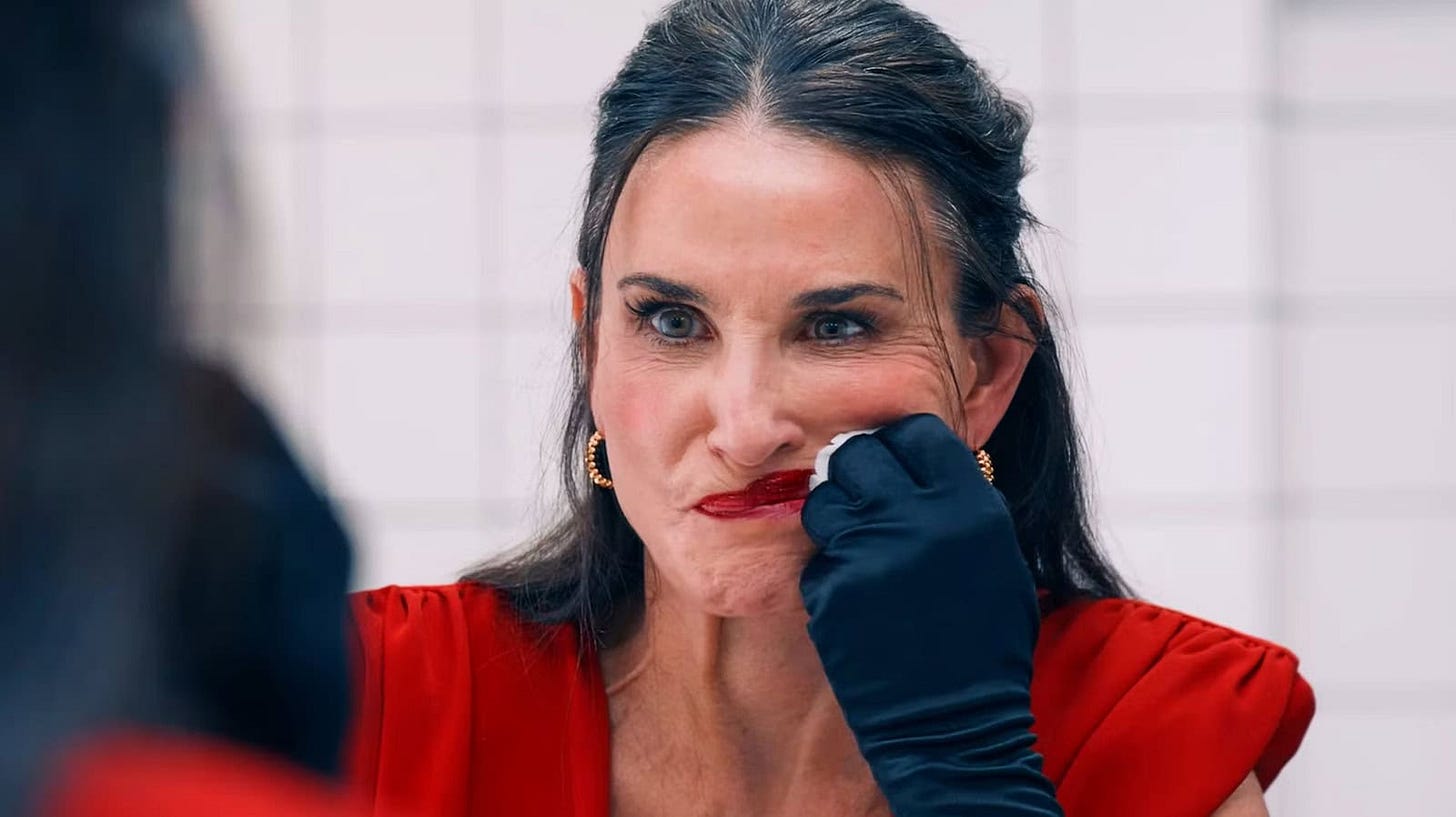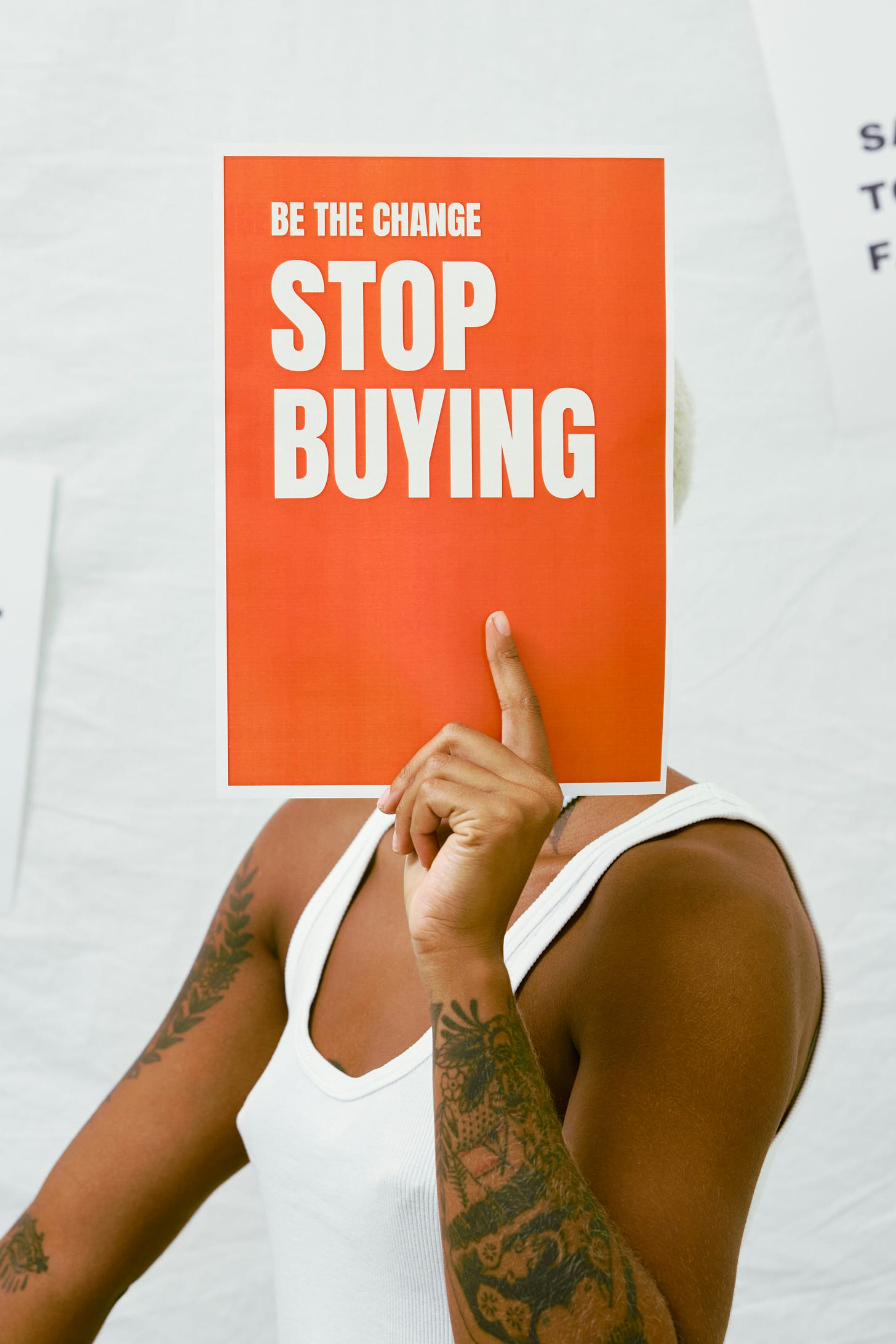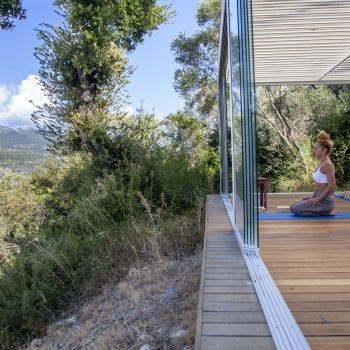Nahid de Belgeonne, “the nervous system whisperer” is an Author and somatic movement educator. She specialises in helping clients through burnout, anxiety, and trauma-related issues with The Soothe Programme.
Hello, how are you doing? Wasn’t the sunshine so welcome this week?
My heart is singing after spending a day catching up with friends. A lunch at OMA with David ( lip-smackingly good) catching up with Lucie and her baby, and watching The Last Showgirl with Suse - it was so poignant and dreamily shot. Go watch it, I’d love to know what you think.
I am still dreaming about the delicious food at OMA
My friends understand me well enough to know that I swerve certain brands, which makes grabbing a tea on the high street a teensy bit challenging.
My active disapproval - and support - gives me the focus to sharpen my values and direct my energy. Expressing my resistance helps me reclaim my power and align my actions with my feelings. It's my daily pushback against cultural values that I don't wholly accept.
Here are 10 ways that I resist.
Demi Moore in The Substance
1. Be loud and proud of my age – I feel blessed to be ageing and never lie about my age. Women are shamed at every stage of their lives and I’m not playing.
Studies show that positive age beliefs can extend longevity by 7.5 years (Levy et al., 2002, Journal of Personality and Social Psychology). Rejecting age stereotypes improves cognitive function and physical recovery. By celebrating our age, we challenge the $58.5 billion anti-ageing industry that profits from age-related insecurities.
2. Moving everyday to regulate my emotions. I don’t want to lay my dysfunction on anyone else. It’s my job to regulate myself and I prioritise it.
Physical movement activates the vagus nerve and releases BDNF (brain-derived neurotrophic factor), which improves neural plasticity and emotional regulation. The polyvagal theory demonstrates that movement helps shift our nervous system from fight/flight to a socially engaged state, reducing emotional dysregulation without medication.
3. Accepting help from strangers. I am often the tube with a big suitcase and am strong enough to haul it up and down stairs. But if someone offers to help me, I let them. There’s a kind exchange when you accept help and it goes both ways.
The "helper's high" phenomenon is well-documented, helping others releases endorphins and activates pleasure centres in the brain for both parties. Research from Harvard's Grant Study shows that positive social connections are the strongest predictor of well-being across the lifespan, countering our culture's emphasis on toxic independence.
4. Asking young lads for directions – I am not fearful of asking groups of young lads for directions. I love their sweetness in vying to be the most helpful one of their group. These micro-interactions help counter the negative stereotyping that occurs in media portrayals of young men, especially those from minority backgrounds.
Positive intergroup contact theory shows that meaningful interactions between different social groups significantly reduce prejudice.
5. Boycotting brands – there are so many that I won’t shop from. I don’t want to be worthy about it or lecture anyone else but I will not give my money to anyone who harms people or the planet.
Consumer boycotts have demonstrable impacts, research shows that when 4-5% of customers boycott, companies often change practices.
Ethical consumption creates market pressure that has led to verifiable improvements in labour practices and environmental standards, as seen in the Fair Trade movement's impact studies.
6. Gatekeeping my nervous system – being mindful of my attention and how I spend it.
Attention economics research reveals how companies monetise our attention. Studies show that conscious media consumption reduces anxiety by 20% and improves sleep quality. Protecting your attentional capacity is neurologically protective against stress-induced cortisol damage.
7. Practice Intermittent Resting - this is practising bouts of deep focus followed by letting your mind wander. It’s in my book Soothe, the paperback is out on March 20th. You can pre-order your copy here.
Deliberate rest contradicts "hustle culture" yet enhances creativity and productivity. National Institutes of Health research shows adequate rest improves immune function by 60% and reduces inflammatory markers associated with chronic disease. By prioritising rest, we resist the cultural glorification of exhaustion and burnout.
8. Engage in face-to-face conversations - I try to talk to at least one person face-to-face who isn’t my husband or one of the dogs. I always tell someone if they are looking fabulous, it makes for a joyful interaction.
In-person social interaction increases oxytocin and reduces cortisol levels, while promoting empathy through mirror neuron activation. Studies show that societies with higher rates of in-person socialisation report lower levels of polarisation and higher community trust, directly countering the isolating effects of online-only discourse.
9. Practice conscious consumption - every time you go to buy something ask yourself, “do I need this right now?” If you don’t, get curious about what prompted you to reach for the buy now button.
Those who simplify their lives by buying less, report 23% higher life satisfaction. Reduced consumption measurably lowers carbon footprints while breaking the hedonic treadmill of temporary satisfaction from purchases, which neuroimaging studies confirm creates only short-term dopamine responses.
10. Being thankful for what I have - I am genuinely thankful for what I have. Right now, I am enjoying watching Spring emerge from my studio looking out onto my garden - a lady den if you will. It’s what I’ve wanted all of my life. A space to sense, think and move.
Gratitude practices physically reshape neural pathways, shifting focus from scarcity to abundance thinking. This directly counters marketing strategies designed to create perpetual dissatisfaction. Regular gratitude practice has been shown to reduce materialistic values and increase prosocial behavior by 20%.
The true resistance lies in conscious choices, reclaiming our autonomy in a culture that often seeks to undermine it. These evidence-based practices aren't just personal preferences; they're pathways to sustained wellbeing in a system not designed for human beings to flourish.
What is a way that you resist a culture that doesn’t share your values?
The next Soothe Day Retreat in London is on Saturday 17th May - I teach the principles of soothing your system each time but also offer fresh perspectives for brain and body movement based on research, what clients are going through, and what is happening in the world. Book into the day retreats throughout the year to keep reminding your system how it feels to be at ease. nab your spot here.
The Soothe Weekend Retreat on 10th - 12th October at The Quaives, a lovely retreat space in Kent, 51 minutes from St Pancras. I’ve already sold the cottages and the rooms in the main house, here is what I have left. Come!
Dorm: 3 beds in the scandi-style dorm @ £650 pp
5 minutes drive up the road staying at The Tor Spa
4 x ensuite rooms 5 minutes car drive away @ £1150 pp
I’m only taking 12 people, be there!
I am making plans for Lefkada, Greece 2026 - single rooms will be £2995 and sharing is £2550 pp - I only take up to 12 people - please let me know if you would like me to send you the details.
Another podcast that I managed to book onto when I was out in LA is out now, you can listen to the Courageous Wellness podcast here.
Have a lovely weekend.
Stay human,
Nahid x
Calm yourself with this week’s somatic breath lesson. This month’s The Soothe Club LIVE session is on Sunday 16th March, the link is below.
Keep reading with a 7-day free trial
Subscribe to Soothe with Nahid de Belgeonne to keep reading this post and get 7 days of free access to the full post archives.












